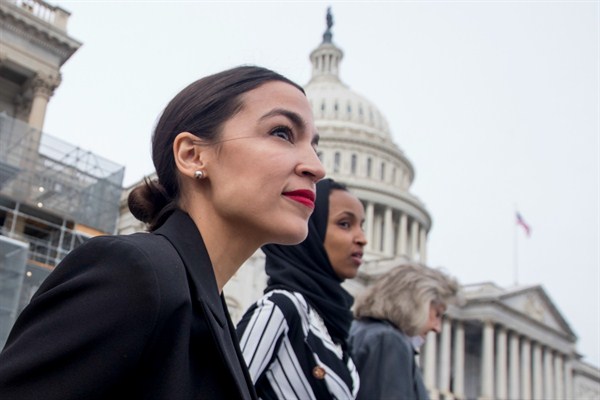The standoff pitting Venezuelan President Nicolas Maduro against National Assembly leader Juan Guaido, who declared himself interim president two weeks ago, continues to paralyze the country. It has also highlighted a political divide outside Venezuela—in particular in the U.S. between advocates and critics of the Trump administration’s pursuit of regime change in Caracas. That debate has broader implications for the formulation of a progressive foreign policy framework in the runup to the U.S. presidential election in 2020.
After the U.S., joined by most of the governments of South America and Europe, recognized Guaido as the legitimate head of state, a group of progressives headed by Noam Chomsky released an open letter calling for an end to U.S. interference in Venezuela’s domestic affairs. The group’s main thrust is not to defend Maduro or the Chavista regime, but rather to argue that the Trump administration’s aggressive policy risks throwing Venezuela into more chaos and perhaps even civil war.
The letter, which was published before the Trump administration’s announcement of sanctions against Venezuela’s state-run oil company, exaggerates the degree to which targeted U.S. sanctions contributed to the country’s economic and humanitarian crises. But it stops short of blaming the U.S. for Venezuela’s meltdown, and the dangers it goes on to warn against are real and plausible. On that count, it is a relatively judicious critique of the administration’s policy, particularly compared to The Intercept, which talks about a White House plot “to bring down the government of Nicolas Maduro” and an “openly promoted . . . campaign to steal Venezuelan oil for the benefit of U.S. corporations.”

